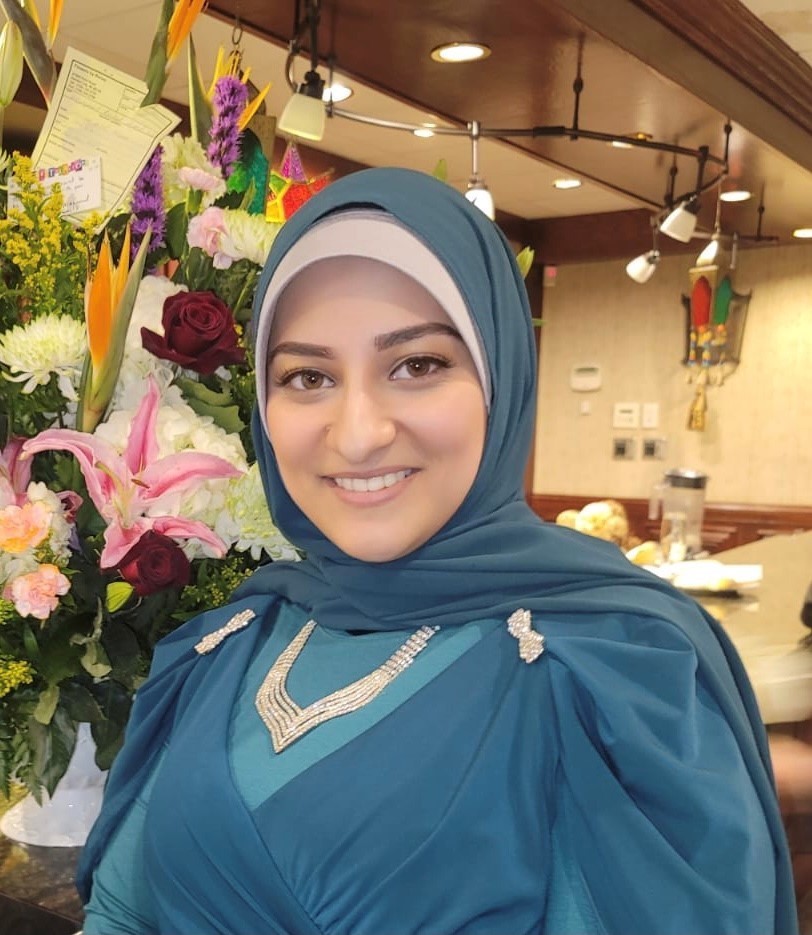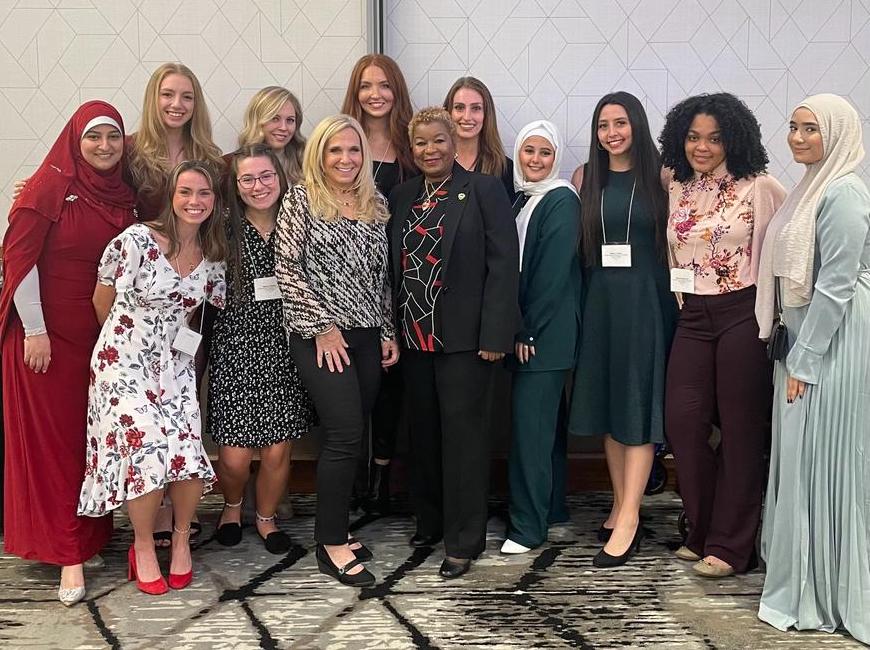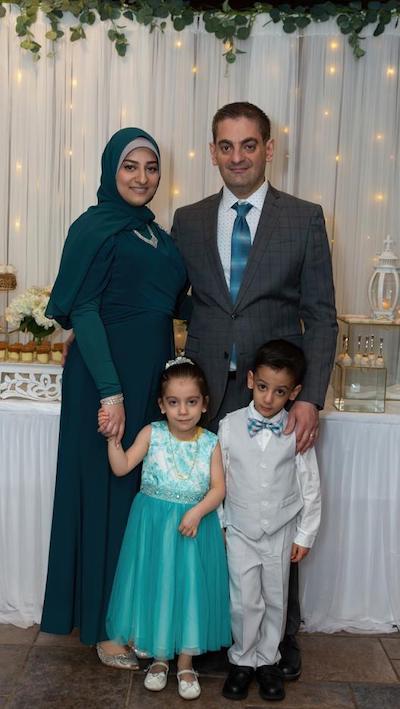Student Spotlight: Q&A with Khouloud Moussa, Radiation Therapy Technology Class of ’23
We’re getting to know students from every program at the Eugene Applebaum College of Pharmacy and Health Sciences. Submit your own details for Student Spotlight consideration by filling out our brief form.
Q: How would your biggest fans describe you?

A: First, I’m passionate. I’ve always been interested in science and like learning about new topics as much as possible. Second, I’m empathetic. I understand other people’s perspectives and find ways to relate to them. Finally, I’m inquisitive. I like to explore the world around me and find meaningful ways to contribute to conversations, and connect with people around me.
Q: What’s your favorite way to spend free time?
A: As a student, I am always busy with my schoolwork on weekdays. As a mother of twins, my favorite way of spending my free time is to be with my children, walking outside, shopping and reading stories. I also express my emotions through drawing and painting, which makes me feel relaxed.
Q: Why Wayne State?
A: WSU fosters an engaging and collaborative environment and builds well-rounded students. The institution also embodies diversity in its programs, clubs, extracurriculars and, most importantly, its people. We encounter a diverse population of patients and it is part of our professional responsibility to make sure all of our patients feel comfortable and respected.

Q: What made you decide to apply to the Radiation Therapy Technology program?
A: I chose this program after my dad was diagnosed with a tumor in his back. He endured a lot of his pain with surgery and radiation therapy, and I was always by his side to support him physically and emotionally. Radiation therapy offers me an opportunity to help individuals at one of the most vulnerable and toughest periods of their lives. It is very gratifying to be part of a lifesaving team. For many, radiation therapy is the difference between hope and despair, life and death. Along with providing radiation, a huge part of a radiation therapist’s job is to foster a trusting, supportive relationship with patients and their families during their journey toward remission. It is a privilege to be a part of that.
Q: Tell us about a WSU Applebaum experience you enjoyed.
A: During my clinical rotations, I got to meet cancer patients and be a part of their difficult journey. The radiation therapists at the clinic made me feel like I was a valuable member of their team, which was rewarding for me as a student.
Q: Tell us about a leadership role you hold.
A: This year, I’ve mentored the junior RTT students. I serve as a guide throughout their first professional year, and I provide professional and personal advice about transitioning into their second year, especially throughout their clinical rotations.

Q: What makes your program special?
A: The WSU Applebaum RTT program offers significant opportunities for experiential learning and clinical practice at major health systems and urban community organizations within walking distance of campus. As radiation therapy students, we gain many experiences at various clinics from Detroit to Ohio so we are familiar with different types of radiation technology machines. The small class size makes learning much easier, and we connect more with each other and professors. The class engages us to be more open about diversity and cultural competency as we encounter a diverse population of patients, and it is part of our professional responsibility to make sure all our patients feel comfortable and respected. The program engages us to be close to the community by participating in cancer awareness organizations. We also get certified by the MSRT by going to the annual event in Lansing.
Q: Share a recent accomplishment.
A: Last year, RTT Program Director Jeannetta Greer and Assistant Clinical Professor Alisa Kagen published The Little Book of Clinical Survival Strategies for RTT Students, and I designed the book cover. I was proud of myself and enjoyed participating in their big project.
Q: What makes you Warrior Strong?
A: Visualizing yourself as a warrior is an excellent way to train your mind for success. A warrior mindset is defined as the ability to face challenges with courage and determination. It is about perseverance in the face of adversity and never giving up. Being a student and a mother can be extremely difficult due to the enormous amounts of responsibility we receive from home and school. However, I always tell myself that our lives do not end when we have children, and that I made the best decision by allowing the life in me to live. I want to set a good example for my children by allowing them to overcome any and all challenges in life and become extraordinary warriors.
Radiation therapists have a unique opportunity to blend the knowledge and skills of mathematics, science and psychology in their daily work. Radiation therapists operate sophisticated radiation equipment to treat malignant tissue, assist in designing cancer treatment through the use of 3D computer-generated calculations, recognize when a patient is having additional medical problems that require a doctor’s attention and provide psychological support for patients who are dealing with the stress of their illness. The bachelor of science in Radiation Therapy Technology is offered through Wayne State’s Eugene Applebaum College of Pharmacy and Health Sciences with an application deadline of Nov. 30.
An anchor in urban health care
The Eugene Applebaum College of Pharmacy and Health Sciences is built on more than 100 years of tradition and innovation in the heart of Detroit. We have grown deep roots in our city, harnessing its powerhouse hospital systems and community service organizations as vibrant, real-world training grounds for students, with an ongoing focus on social justice in health care. And our research at all levels – from undergraduates to veteran faculty members – translates into creative solutions for healthier communities.
Wayne State University is a premier urban research institution offering approximately 350 academic programs through 13 schools and colleges to nearly 24,000 students.
